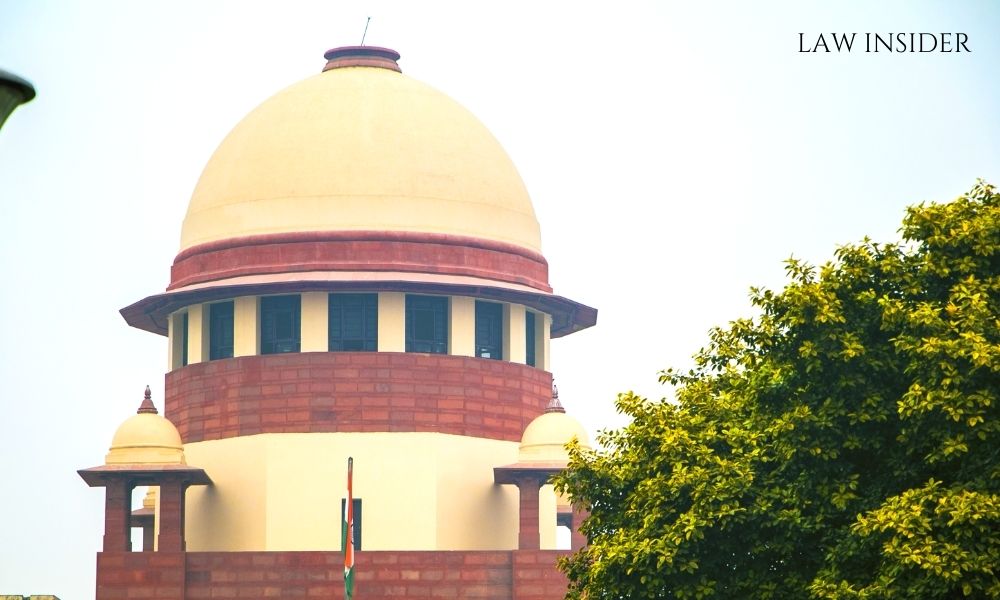Bhuvana Marni
Published on: October 17, 2022 at 13:22 IST
The Supreme Court instructed the petitioner to take their complaints to the Gauhati High Court on Friday in response to a petition that, inter alia, requested for the Apex Court’s indulgence to halt the alleged harassment of Assamese members of religious and linguistic minorities under the pretence of locating and deporting supposed foreigners.
“Petitioner would be at liberty to approach the High Court for appropriate relief.”
Previously, the Apex Court had postponed the plea hearing and asked the petitioner to return with additional “structured reliefs” as the current petitions are poorly organised.
The petitioner’s attorney, Mr. Adeel Ahmed, appeared on behalf of the petitioner on Friday. He informed the bench, which was made up of Justices D.Y. Chandrachud and Hima Kohli, of the situation and asked for permission to apply to alter the petition.
The Bench requested that he appear before the High Court, adding that if the case was ever brought up for appeal, the High Court’s ruling would help resolve the concerns.
“Why don’t you go to the High Court with all these reliefs? Let us have the benefit of the judgment of the High Court and then you can come here…In many of these issues like, burden of proof, nature of proof required, let’s have some idea from the High Court.”
The petition requests, among other things, that authorities do not delete or exclude names from the “final draft” of the NRC published on August 31, 2019, stop further identification of “Doubtful” voters without proper verification, and only finalise the draft NRC after giving anyone whose name is missing from the 2019 list the chance to appeal the decision to reject their applications.
Another set of requests in the petition asks the Bench to add specific protections to the Foreigners Act of 1946 and the Foreigners (Tribunals) Orders of 1964. It also asks for a reconsideration of the Supreme Court’s ruling that the Illegal Migrants (Determination by Tribunals) Act of 1983 is ultra vires.
Using the aforementioned order, the Apex Court has also instructed the concerned authorities to resolve citizenship cases involving suspected foreigners under the Foreigners Act 1946, noting that Assam has experienced both internal and external disturbances as a result of the unabated influx of illegal migrants from Bangladesh.
According to the petition, the aforementioned directive has given the authorities more leeway to make rash accusations, unilaterally refer cases without conducting a thorough investigation, and promote arbitrary decision-making by Foreigners Tribunals.
The petition claims that, in the absence of the protections outlined in the Illegal Migrants (Determination by Tribunals) Act, 1983, the ruling implies that the burden of proof to demonstrate citizenship has been placed on the “poor petitioners.”
On the last date of the hearing, the Bench had made it abundantly clear that in the exercise of jurisdiction under Article 32 of the Constitution of India, it would not be possible for it to review the said order.
The petition submits that the 2019 list has left out 19,06,657 applicants. The process of proving citizenship status is difficult and the difficulty increases manifold for married women trying to establish citizenship by proving their lineage.
The petition also raises allegations of ethnic cleansing.
It points out that after the conclusion of the Assam Legislative Assembly elections in 2021, the newly appointed Chief Minister, Dr Himanta Biswa Sarma announced that 20% of the NRC will be reviewed in the border areas and 10% in the other areas.
The State Coordinator of the Assam NRC has also approached the Apex Court seeking re-verification of the draft NRC and the supplementary list of NRC under Clause 4(3) of Schedule of Citizenship (Registration of Citizens and Issue of National Identity Cards) Rules, 2003.
The petition was filed through Advocate-on-Record, Mr. Adeel Ahmed.
Case Title: Tarek Aktar Ansari vs. UOI and Ors.

